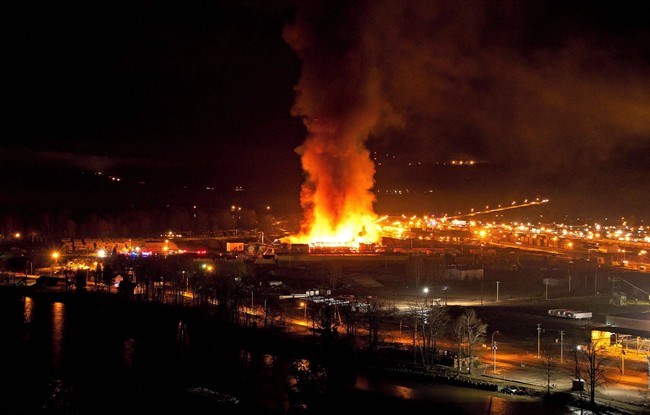 WorkSafe B.C.’s beefed-up investigation department, with new authority to lay charges that might stick for a change, won’t necessarily lead to more prosecutions of unsafe employers.
WorkSafe B.C.’s beefed-up investigation department, with new authority to lay charges that might stick for a change, won’t necessarily lead to more prosecutions of unsafe employers.
Gordon Macatee, who was brought in to redesign the workplace-safety agency’s functions after it blew investigations into two fatal mill explosions in 2012, said prosecutions aren’t the main measure of the agency’s role. Macatee released an update Tuesday on WorkSafe’s response to a host of changes he recommended last summer to retool the outfit.
Looking at the new process now in place, you’d expect there might be an increase in the number of charges that might flow from WorkSafe investigations, now that they can be conducted much like police ones. But Macatee said he doesn’t expect that to be the case.
The agency previously had limited capabilities when it came to investigating serious workplace accidents, he said.
The new model that he designed gives them more tools and much more authority to impose penalties and issue orders against employers. It will be to the point where industry will be more compliant so there will be “potentially less need to get to a place where you need to have prosecution as a last resort.”
“So I don’t expect we’re going to have a large increase in the number of prosecutions. The important thing is that when we need to use that tool it will be successful. That was the failure, if you like, in the two explosions where the prosecution just simply wasn’t able to proceed.”
WorkSafe’s investigation into the sawdust-triggered explosions stalled out when the agency tried to switch from just determining the cause to pursuing cases for violating standards against the companies involved. It presented evidence to the criminal justice branch, but it was all rejected because it wasn’t collected properly, so there was little likelihood of a conviction. Search warrants weren’t obtained, witnesses weren’t warned of their rights and there were other deficiencies in the probes.
So the mill owners wound up liable for administrative penalties and costs, rather than more serious sanctions. It was, and is, a sore point in communities where four men died and dozens were injured.
The new system is supposed to preclude that from ever happening again. WorkSafe B.C. will continue to investigate the cause of workplace accidents. But if those probes start to turn in the direction of laying charges, the file is turned over to a completely different team. It starts over from scratch and takes a harder-edged approach, following police procedures that are more likely to stand up in court.
The vast majority of the work is determining the cause of accidents and determining how to prevent them. A small number will become the more serious type of investigation into possible charges.
The update on the new arrangement comes four months before a coroner’s inquest into the deaths is scheduled to start in Prince George. And the new system will likely forestall any inquest recommendations about changes at WorkSafe B.C., since wholesale changes have already been made.
Macatee also gave an update on the sawdust issue in general, saying more than 100 mills were doing daily inspections as of October. Although compliance with new dust standards was low even well after the accidents, he said the latest numbers show only two work orders and one short-term stop-work order arising from 118 inspections. He said he was impressed with the level of engagement.
Macatee, who is the B.C. ferry commissioner, is a special adviser and acted as administrator for several months, but will bow out next year. A new CEO was named Tuesday — Diana Miles, a 10-year veteran of the agency.
Just So You Know: It’s not related to the mill-explosion deaths, but Macatee also cautiously suggested another workplace safety measure — the idea of levying fines against employees who flout safety rules. He recommended consulting on whether “a limited citation model should be introduced for workers who fail to wear personal protective equipment.”
A worker caught without the proper gear would be ticketed for the infraction and liable for a fine of $100 or so, with the employer liable for the same or more. The concept is still under study.



